Nowadays, consumers tend to look for ethical and sustainable products. This gives rise to responsible brands, such as Lush Fresh Handmade Cosmetics, which offers 100 per cent vegetarian cosmetics, or Fairphone, who offers phones with responsible sourcing, or Patagonia, which focuses on ethical production of their products (Gursawska et al. 2017). Examples from Finland could include plastic-free beverage cup manufacturer Kotkamills as well as biomaterial company Sulapac.
This can also work in a reverse manner, when many customers abandon companies which have acted in an unethical or unsustainable way, like in the cases of British Petroleum and the oil spill in the Gulf of Mexico in 2010 or the Volkswagen emissions scandal in 2015. Another example can be found from a Miltton study from 2017, that included surveys from Sweden, Finland and Estonia. The results showcase that majority of the people think that companies should participate in solving societal problems.
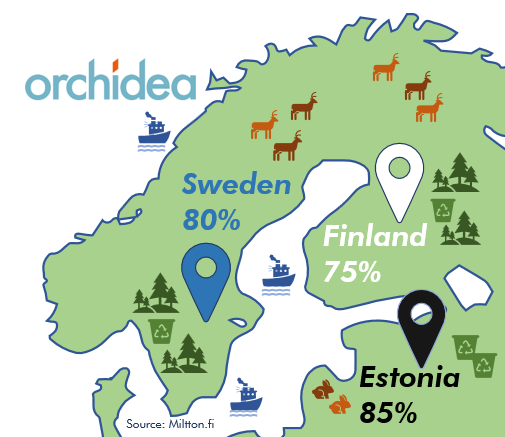
Share of respondents that agree with statement "Companies should be involved in solving societal problems" according to study by Miltton
According to the Research- and Innovation Council led by the then prime minister Juha Sipilä, Finland will be the world’s top environment for innovation by the year 2030. The level of RDI-investments (research, development and innovation) will also be increased all the way up to 4% of the GDP from the current 2,7%. But innovation doesn’t guarantee positive results in itself. So how to make sure that the innovation activity we are funding will take us towards a better and a more sustainable future?
Added evaluation criteria or quality management doesn’t need to hinder development and innovation. It has been long acknowledged in the field of innovation that including stakeholders and customers in the development process can positively affect how the innovation will be received societally as well as among target groups. This can also have a positive effect on the reputation of the organization, strengthen the relationship with customers and end-users, as well as add trust to the safety and legitimacy of the innovation in question. This can in turn lower risks and can help avoid unwanted consequences. One way to approach this is the introduction of RRI (Responsible Research and Innovation)-practices.
Introduction of responsible research and innovation
Essentially RRI means responsible research and innovation practices, but it also serves as a key element in EU’s Horizon 2020 program concerning research and innovation. RRI can also be understood as a shift in responsibility towards a collective and distributed approach to responsibility by including several actors of the society in different processes of research and innovation.
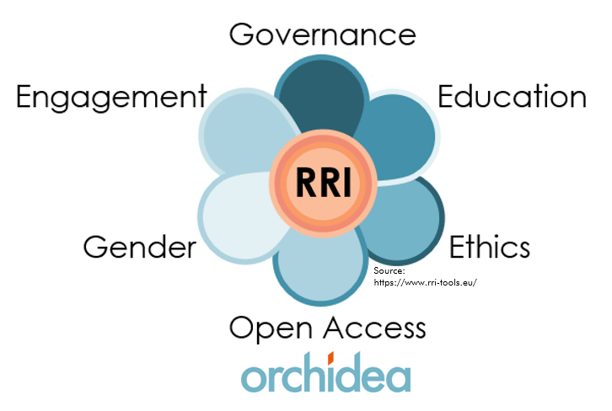
Responsible research and innovation also acts as a wide umbrella connecting different aspects of the relationship between R&I and society: public engagement, open access, gender equality, science education, ethics, and governance. Here, one of the key features is bringing together different actors from different fields like researchers, policy makers, educators, business actors and civil society representatives. This way there will also be learning outcomes from the process.
This also enables introducing societally more large-scale approaches maintaining the vital societal aspect of inclusion, which has become all the more relevant in the current times. RRI also acts as part of a solution to the grand challenges outlined by the European Commission. These challenges include global concerns like food security, clean energy, secure societies and climate action.
The RRI-approach was set in motion by the European Commission. One of the ways RRI-practices can spread is through funding criteria. The EC is a major financier for research in Europe, and its guidelines play a crucial role with regards to the objectives and methodology that different stakeholders involved in research practices should pursue. One instrument that can be used is adding RRI as part of funding criteria.
Examples of responsible research and innovation: the MARIE-project
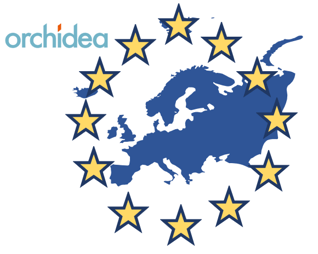
MARIE (MAinstreaming Responsible Innovation in European S3) is an EU-funded international Interreg Europe-project that looks to spread responsible ways of being innovative and doing research. This is done regionally with partners from 8 regions across Europe, with the aim to improve regional public policy and connect RRI with products, processes, service design, production as well as distribution.
The Council of the Tampere Region conducted an EU-funded call for funding in the field of artificial intelligence, that included an added element of responsibility as criteria, brought in by the MARIE-project. The responsibility indicators, in practice, included four different criteria: ethics, involvement, safety and reliability as well as transparency and openness. All of these themes needed to be considered in all phases of the funded project, from the development phase forward all the way up to the actual effects of projects.
The responsibility criteria was added in the form of questions which were detailed as follows; “in what ways does the innovation process reflect openness” and “how will the accountability and the security of the projects actions and results be ensured” and “which actors and stakeholders will participate in the development- and innovation processes and why”.
The project will continue with additional funding calls in the near future and the aim will continue to be cementing RRI as part of R&I in Europe in the years to come. It has been noted within the MARIE-project this pilot of responsibility criteria is a unique pilot in the EU-level. Some initiatives exist, but the qualitative and ready-to-use approach has been seen valuable by the project’s stakeholders.
Summary
All in all, there seems to be a clear trend where responsibility is joining gender equality and ecological values as the new norm. The trend has made its way through the EU and it has gained room in our own governmental system as well. The MARIE-pioneered approach of the added criteria of responsibility in funding calls acts as just one practical example of how the principles of responsibility can spread in the EU.
About the author
Matias Heikkilä works as a research assistant at the Tampere University Innovation Studies Group and is also part of the MARIE-project.
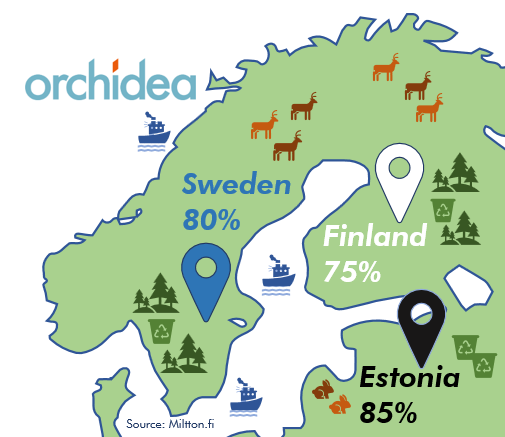


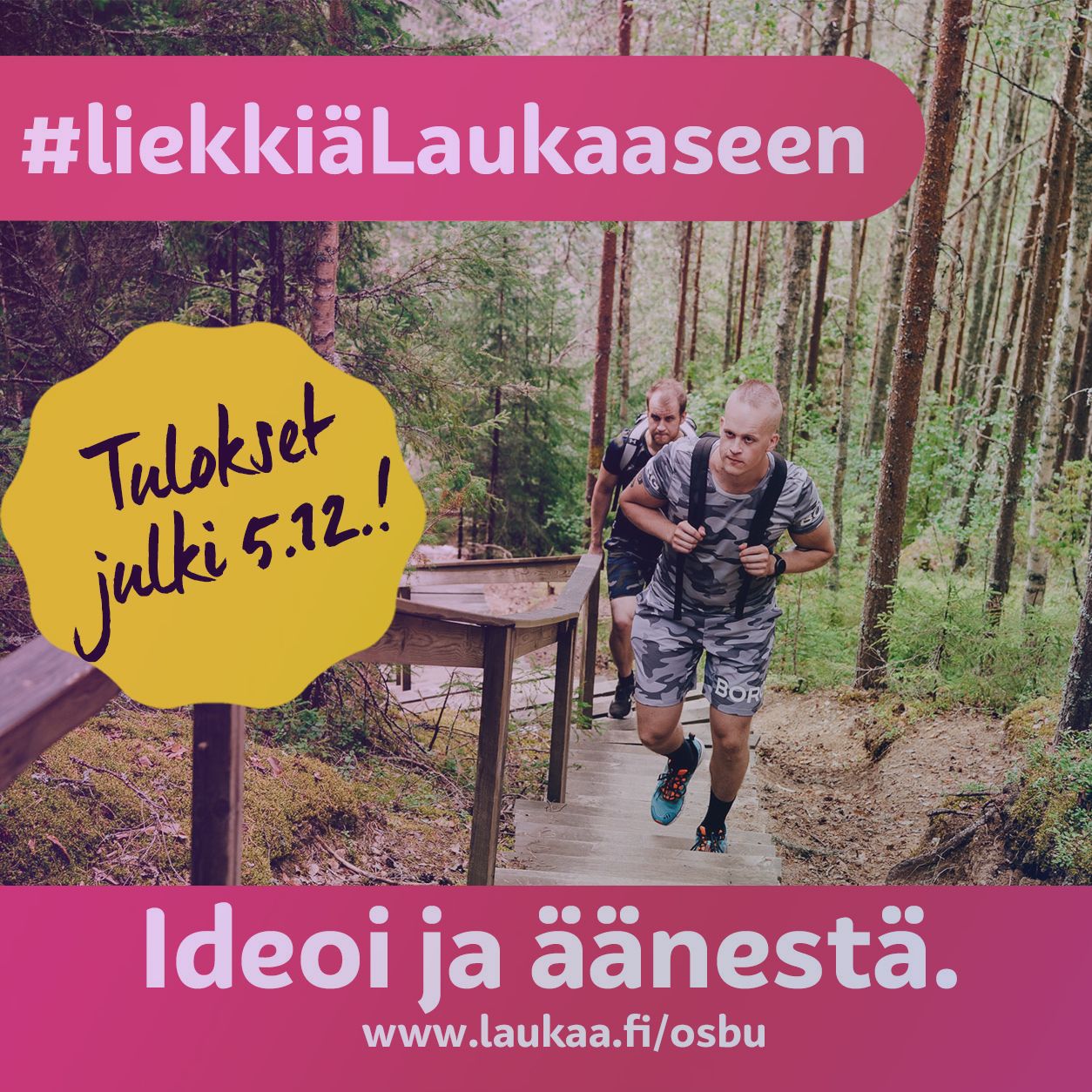
.jpg)